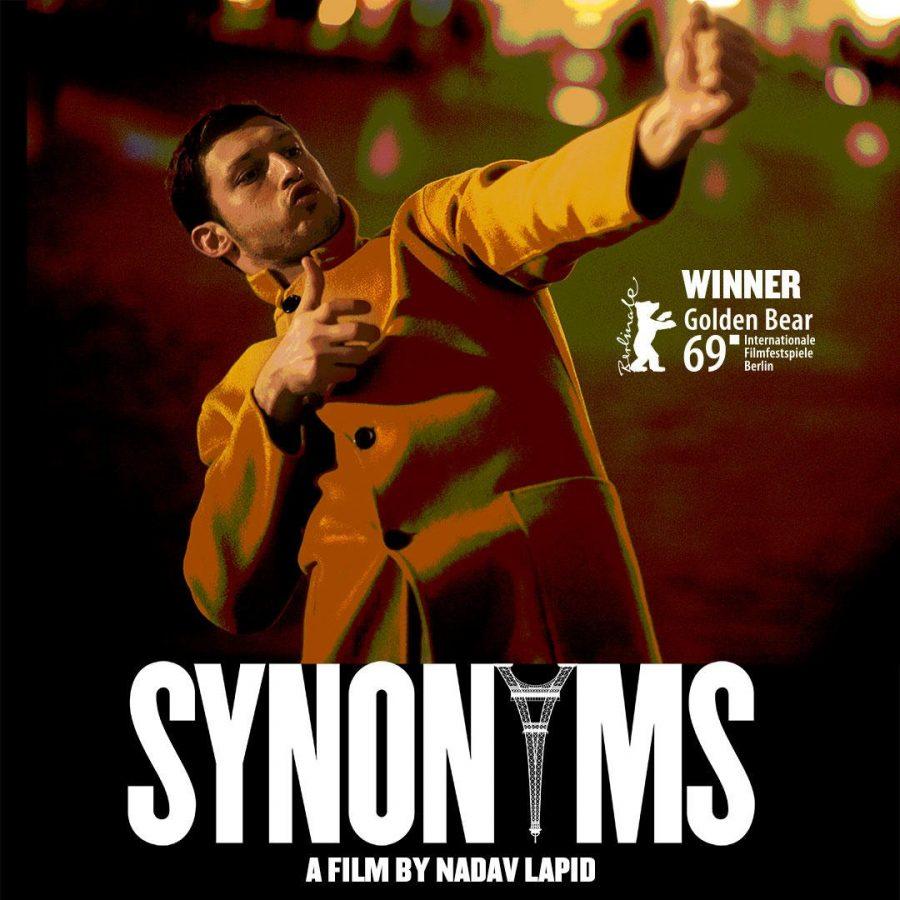Dashing through Paris in an uproarious and unpredictable fashion, Yoav (Tom Mercier) taps into the frenzy of France’s spirit as he joyously flirts with the notion of liberty that he believes to be ingrained in the nation’s heart. With “Synonyms,” Nadav Lapid has crafted a cinematic thesaurus that frames and reworks the same concepts of identity over and over again throughout a flurry of scenes. There’s a pulsing essence that strings every mismatched scene together, an ever-present and ever-intriguing question mark that drives Yoav as he drifts about the city.
Echoing Lapid’s own belief that he was born in the Middle East by mistake, Yoav reveres Paris. The old Yoav died as soon as he got to France and the newly reborn Yoav believes he’s finally reached heaven. He enunciates every new French word he learns from his pocket dictionary with a sense of triumph. The precise root of his intense aversion to home is left ambiguous, making it resonate all the more. He’s a creature of passion, and all his passion is channelled toward his idealistic pursuit for meaning as a newly reformed citizen of France. As he bellows the French National Anthem, it’s clear Yoav is tragically infatuated with some ideal notion of France, not its reality.
And so unfurls “Synonyms,” placing different philosophical quandaries on top of Yoav’s shoulders from one scene to the next. Surrendering his mind, body and soul to the role of Yoav, Mercier delivers a tour de force performance that keeps the film afloat and in focus throughout its many detours. He conveys the physicality of emotions extremely well. Watching him act is a veritably beautiful experience, as he manipulates his muscles — both vocal and locomotive.
As if the emotionally intellectual dance Mercier performs throughout the entirety of the film was not enough, cinematographer Shai Goldman breathes life into every shot. He makes the camera into a character of its own, reacting to the events of the film. The camera in “Synonyms” sneers, runs, mocks and talks, layering audience perception into an active interplay rather than a simple beholder-beholden dynamic. That said, the progression of “Synonyms” is also very much at the whim of its brilliant editor, to whom the film is dedicated. The scene-to-scene unpredictability of the picture is seamlessly strung together by the director’s mother Era Lapid, who balances the weight of Mercier’s acting, the effusiveness of the camera and Nadav Lapid’s heady ideas by perfectly regulating the film’s heartbeat, only to let it uncontrollably crescendo once the film reaches its finale.
Nadav Lapid’s “Synonyms” is a hymn of meaning and melody that tackles the hardship and futility behind self-substitution. Untethered from logic, the film runs at a relentless pace, unspooling a plethora of sights, sounds, ideas and characters throughout its runtime that have been cohesively assembled by the hands of both Lapids. In the end, we have a film that comes together as a transfixing piece of art that’s bound to shock, enlighten and impress its audience.
Email Nicolas Pedrero-Setzer at [email protected].























































































































































